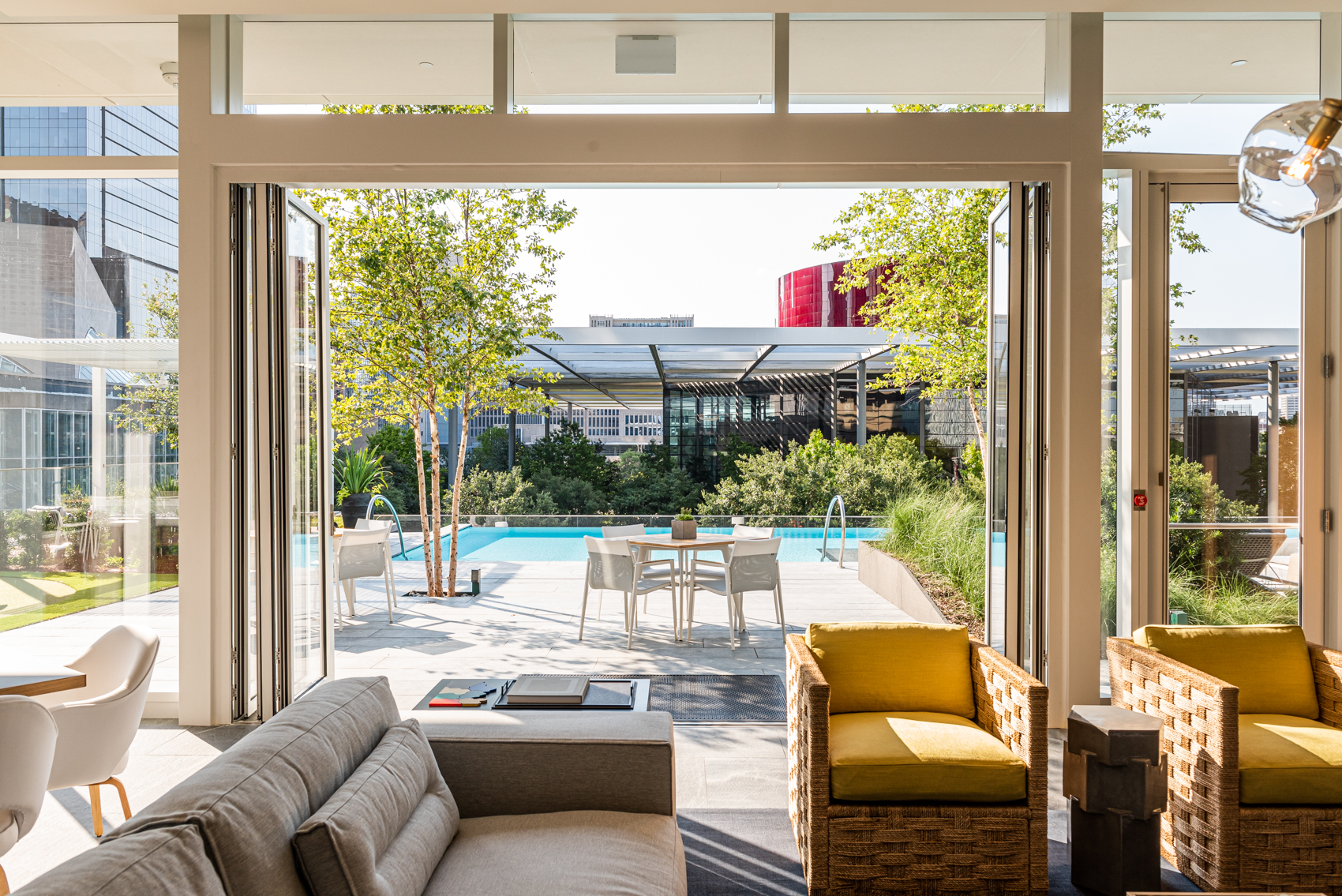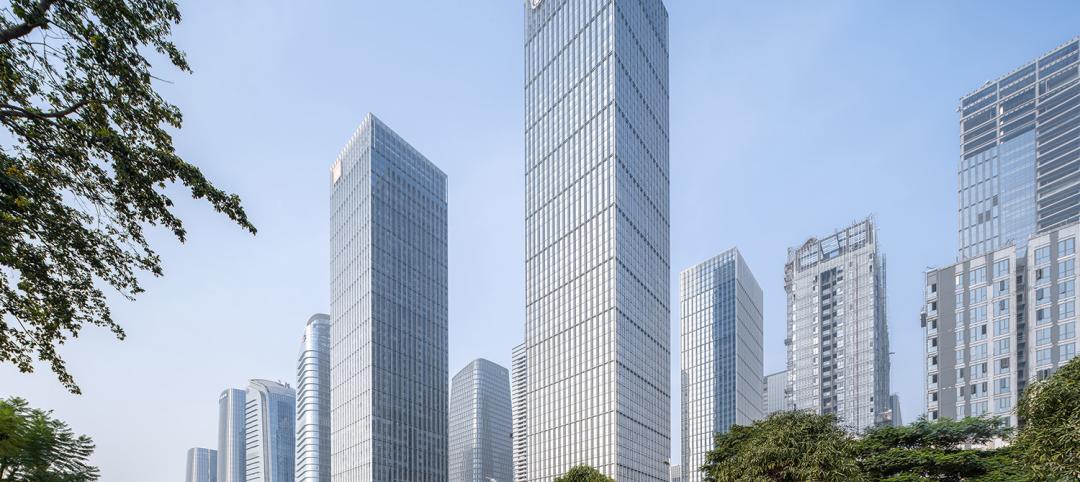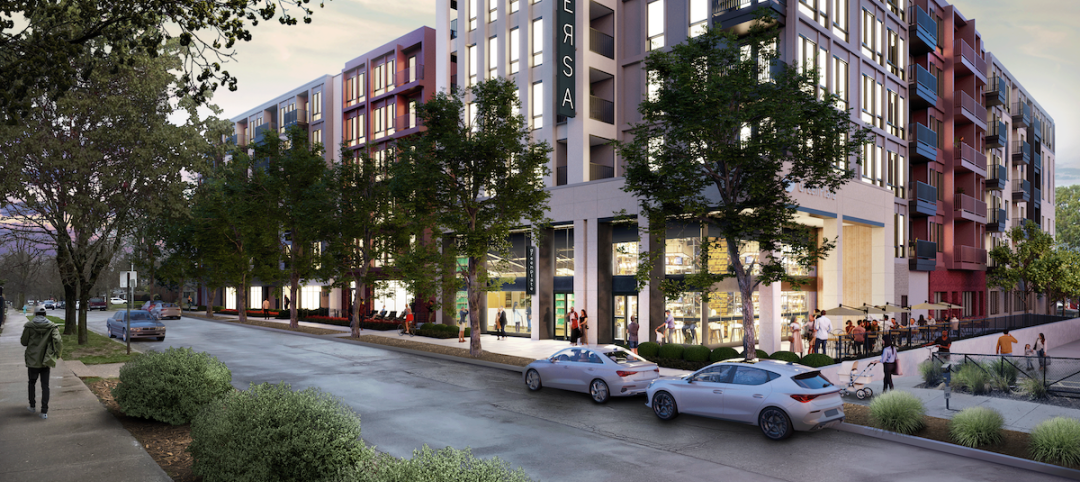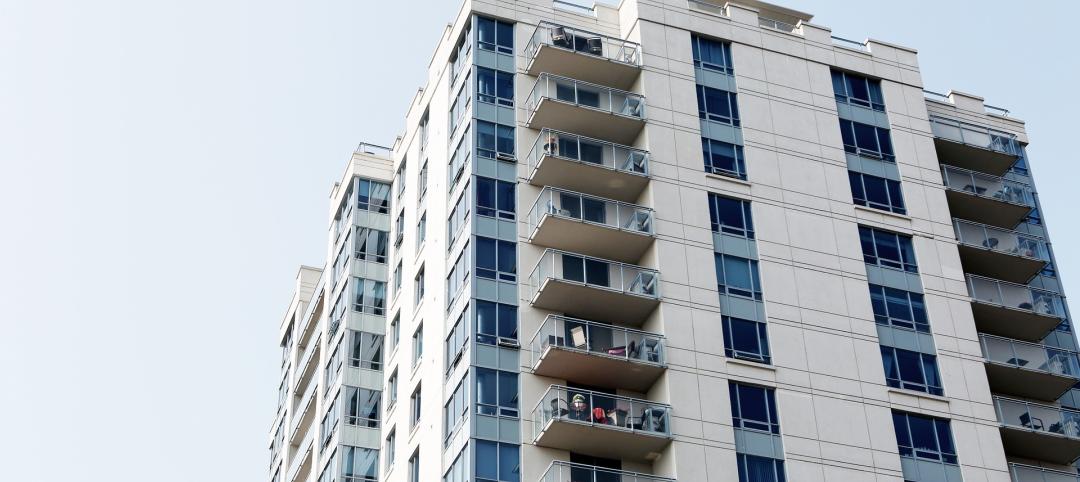HALL Arts Residences, 28-story luxury residential high-rise in the Dallas Arts District, recently became the first high-rise multifamily tower in Texas to receive WELL Gold Certification, a designation issued by the International WELL Building Institute. The HKS-designed condominium tower was designed with numerous wellness details.
Building materials and products were selected to prevent volatile organic compounds (VOCs) from impacting indoor air quality. Multi-level air filtration systems capture fine and coarse particles including pollen to reduce asthmatic, allergic, and other respiratory conditions. Flooring in all units contains sound-reducing, VOC-compliant membranes that mitigate impact noise from the home above.
Eleven-foot-plus, floor-to-ceiling windows offer sweeping views of the Dallas Arts District and Downtown Dallas, also supplying abundant natural light to support homeowners’ circadian rhythms. Healthy snack options are available throughout the common areas. The property also provides direct connection to the arts district’s green spaces and parks.
The development’s 48 units began opening in summer 2020. Available units start at $3.5 million, ranging in size from 2,900 sf to an 11,000 sf penthouse. Amenities and services offered include car service to and from Love Field airport, services to support frequent travelers including weekly starting of residents’ cars while they are away, home check-ins, grocery-stocking ahead of residents’ return, and a housekeeping turndown service before arrival. Safety features include destination-based elevators, overnight security staff, and a state-of-the-art CCTV system.
The property offers the option of coordinating catering and private dinners with the executive chef at Ellie’s at nearby HALL Arts Hotel. These catered dinners can take place in a private unit or in the building’s private wine room overlooking the Arts District. The room features cork-lined walls and a 27-foot-long, wood-slab table.
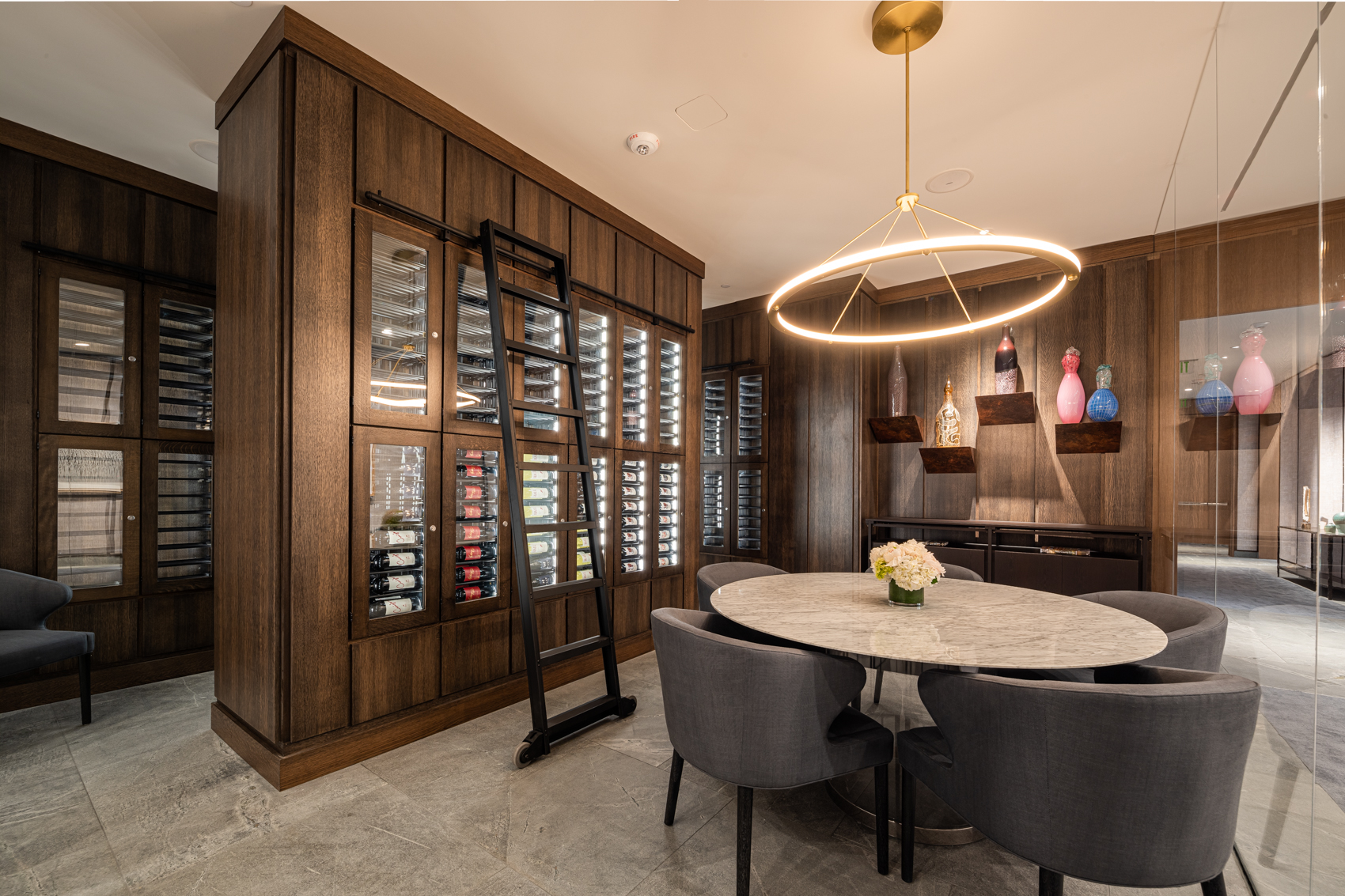
In keeping with the wellness theme, the property offers two state-of-the-art fitness centers, a treatment room, resort-style pool, and a rooftop resort-style pool along with a putting green. Dog owners have the use of an indoor grooming station and play area, and an outside covered dog run.
Just the 14th project to achieve WELL certification in Texas, HALL Arts Residences has also received LEED Gold Certification.
On the building team:
Owner and/or developer: HALL Group
Architect: HKS
MEP engineer: Blum Consulting Engineers
Structural engineer: Brockette Davis Drake
General contractor/construction manager: Austin Commercial
Interior Design: Emily Summers Design Studio
Here is the official release from HKS:
Dallas-based real estate developer HALL Group announced today that HALL Arts Residences, the company’s 28-story luxury residential high-rise in the Dallas Arts District, is the first high-rise multifamily tower in Texas to receive WELL Gold Certification, issued by the International WELL Building Institute. Last October, the building also received LEED Gold Certification, issued by the U.S. Green Building Council.
Created through seven years of rigorous research and development, the WELL Building Standard is a performance-based system used to measure, certify, and monitor features of an environment that impact human health and well-being through air, water, nourishment, light, fitness, comfort, and mind.
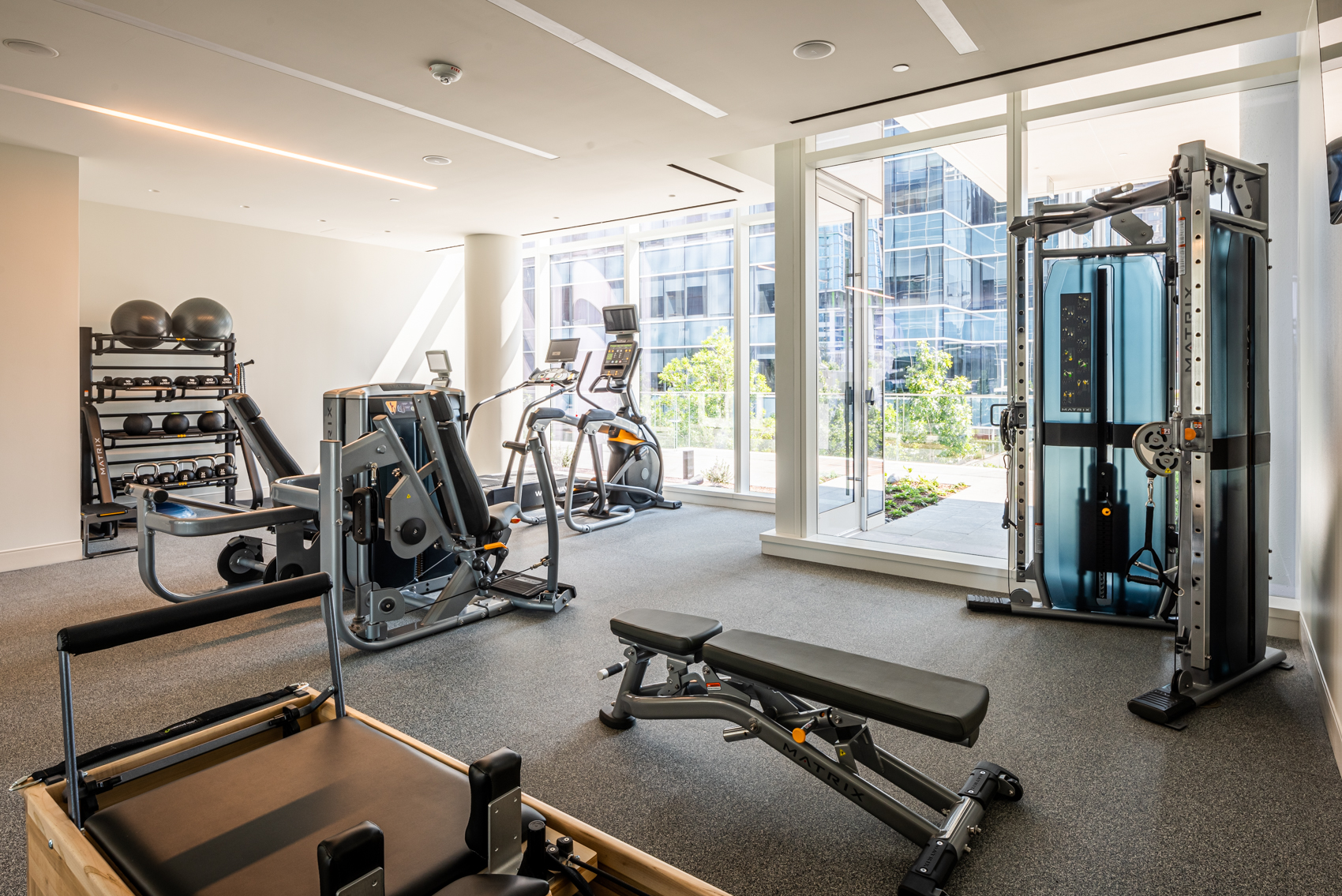
The HALL Arts Residences design and construction team, led by HKS, Emily Summers Design Associates, and Austin Commercial, implemented thoughtful design planning and advanced technologies to create this high performing building, focused on the wellbeing of the building’s residents, staff, and guests. Some of the specific wellness-focused features of the building include:
- Building materials and products are carefully selected to prevent the introduction of volatile organic compounds (VOCs) into the building.
- Multilevel air filtration systems designed to capture fine and coarse particles, such as VOCs and pollen, that work toward reducing asthmatic, allergic, and other respiratory conditions.
- Flooring in all homes that contains sound-reducing, VOC-compliant membranes that mitigates impact noise from the home above.
- Eleven-foot+, floor-to-ceiling windows offering beautiful views of the Dallas Arts District and Downtown Dallas, while supplying ample natural light to support homeowners’ circadian rhythms.
- Healthy snack options available daily throughout the common areas of the Residences and direct connection to the arts district’s ample greenspaces and parks.
“The health and wellness of our homeowners was a top priority when designing and building HALL Arts Residences,” said Craig Hall, founder and CEO of HALL Group. “WELL Gold Certification aligned with our vision to create the most beautiful, sustainable, and health-focused residential tower in Texas and gave us the opportunity to achieve this top building health standard.”
“HALL Group challenged HKS to design a first-of-its-kind residence in the heart of the Dallas Arts District,” said Allison Smith, Sustainable Design Leader at HKS. “We saw an opportunity to create a people-first community that uses proven strategies to positively impact well-being.”
Receiving the WELL Gold Certification ensures that homeowners will enjoy the highest level of health and wellness through their built environment at HALL Arts Residences for years to come. Through the scientific rigor of the WELL Building Standard, residents and community stakeholders can take comfort in knowing that the design and operation of their building is actively contributing to a better, healthier environment. On-site assessments will take place annually to ensure these high standards continue to be met.
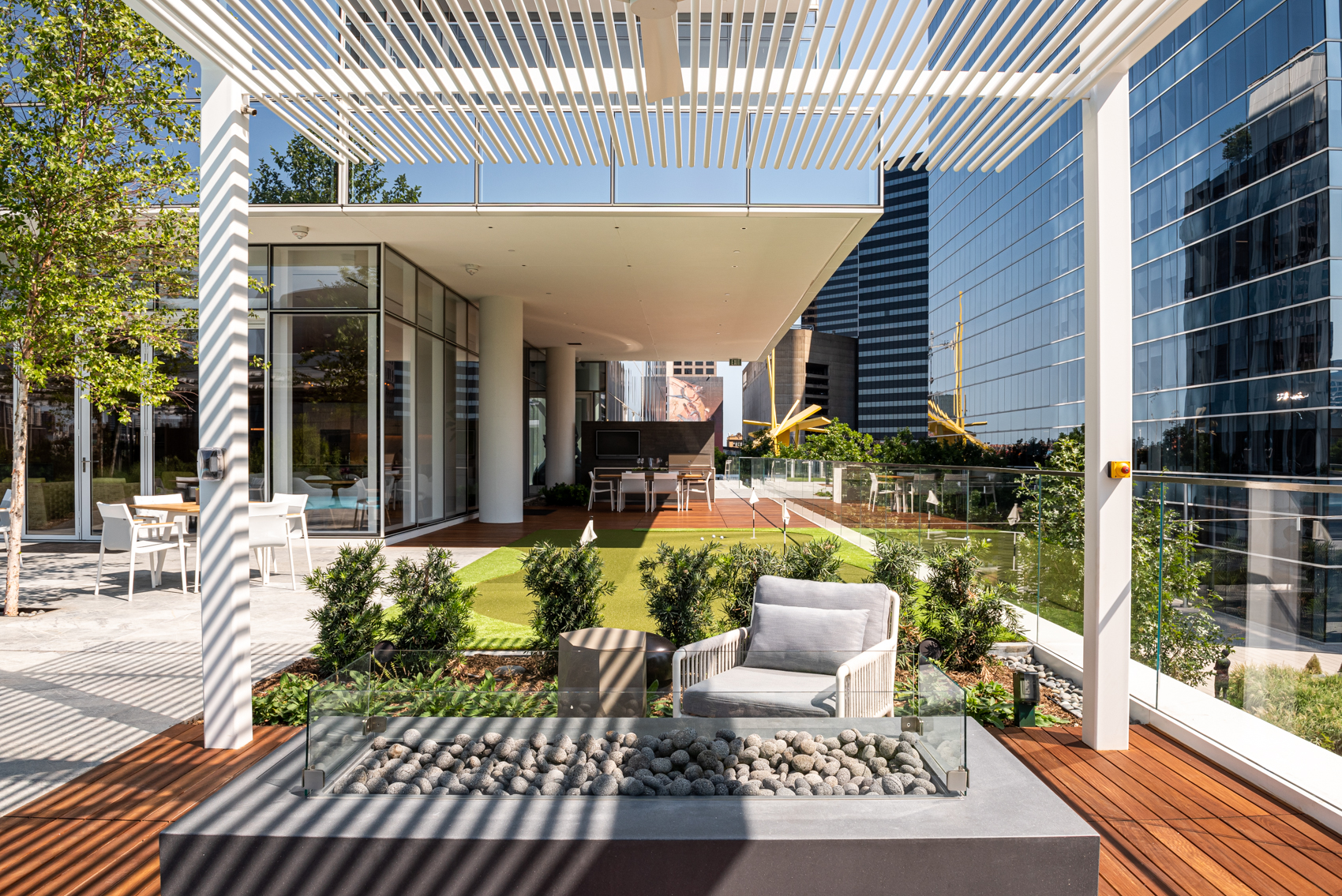
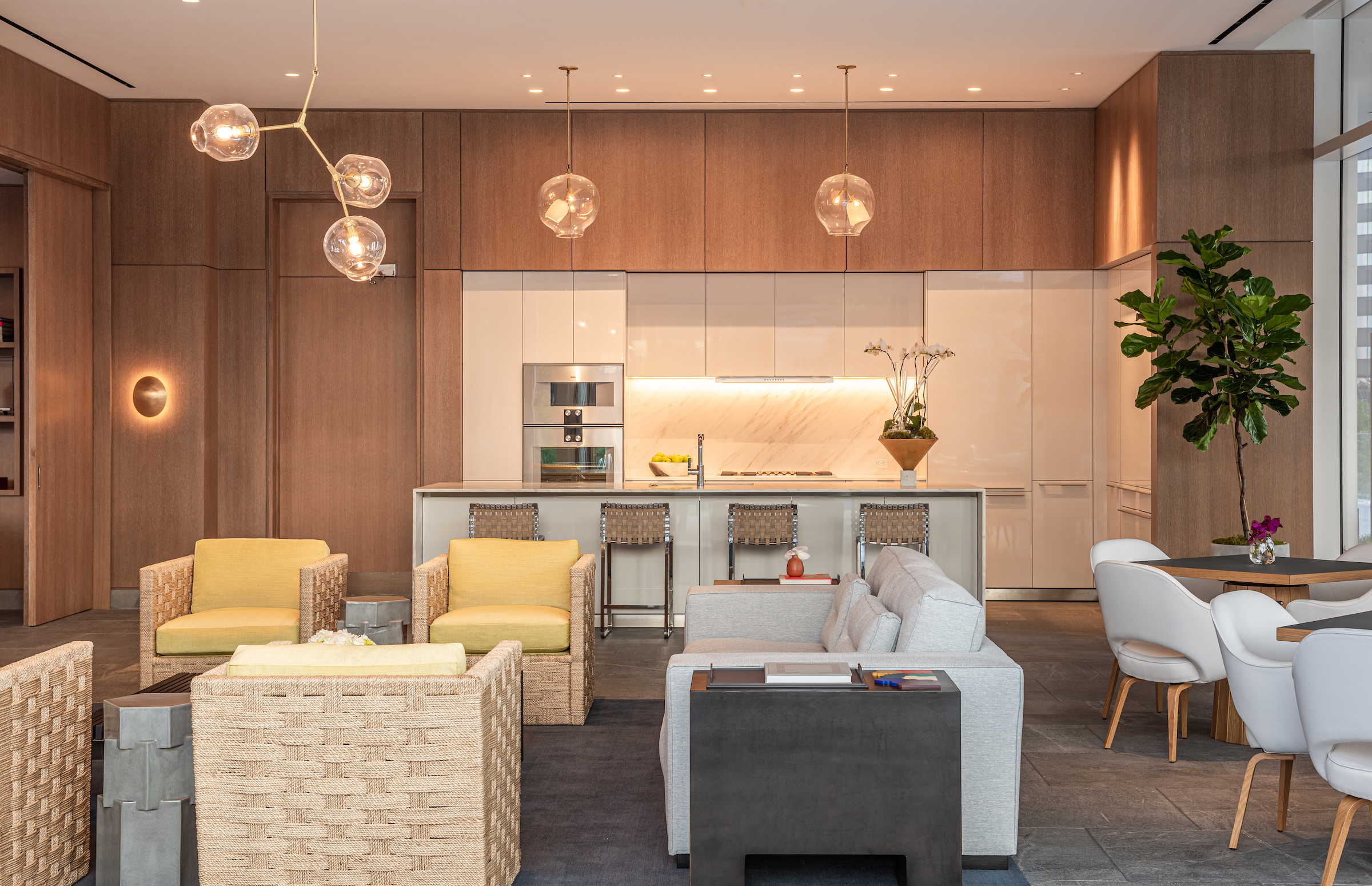
Related Stories
Mixed-Use | Jun 12, 2023
Goettsch Partners completes its largest China project to date: a mixed-used, five-tower complex
Chicago-based global architecture firm Goettsch Partners (GP) recently announced the completion of its largest project in China to date: the China Resources Qianhai Center, a mixed-use complex in the Qianhai district of Shenzhen. Developed by CR Land, the project includes five towers totaling almost 472,000 square meters (4.6 million sf).
Mixed-Use | Jun 6, 2023
Public-private partnerships crucial to central business district revitalization
Central Business Districts are under pressure to keep themselves relevant as they face competition from new, vibrant mixed-use neighborhoods emerging across the world’s largest cities.
Multifamily Housing | Jun 6, 2023
Minnesota expected to adopt building code that would cut energy use by 80%
Minnesota Gov. Tim Walz is expected to soon sign a bill that would change the state’s commercial building code so that new structures would use 80% less energy when compared to a 2004 baseline standard. The legislation aims for full implementation of the new code by 2036.
Multifamily Housing | Jun 1, 2023
Income-based electric bills spark debate on whether they would harm or hurt EV and heat pump adoption
Starting in 2024, the electric bills of most Californians could be based not only on how much power they use, but also on how much money they make. Those who have higher incomes would pay more; those with lower incomes would see their electric bills decline - a concept known as income-based electric bills.
Multifamily Housing | May 30, 2023
Boston’s new stretch code requires new multifamily structures to meet Passive House building requirements
Phius certifications are expected to become more common as states and cities boost green building standards. The City of Boston recently adopted Massachusetts’s so-called opt-in building code, a set of sustainability standards that goes beyond the standard state code.
Multifamily Housing | May 30, 2023
Milhaus, Gershman Partners, and Citimark close on $70 million multifamily development in Indy
Versa will bring 233 studio and one- and two-bedroom apartments to Indianapolis's $271 million, Class-A Broad Ripple Village development enterprise.
Multifamily Housing | May 23, 2023
One out of three office buildings in largest U.S. cities are suitable for residential conversion
Roughly one in three office buildings in the largest U.S. cities are well suited to be converted to multifamily residential properties, according to a study by global real estate firm Avison Young. Some 6,206 buildings across 10 U.S. cities present viable opportunities for conversion to residential use.
Multifamily Housing | May 19, 2023
Biden administration beefs up energy efficiency standards on new federally funded housing
The Biden Administration recently moved to require more stringent energy efficiency standards on federally funded housing projects. Developers building homes with taxpayer funds will have to construct to the International Energy Conservation Code (IECC) 2021 for low-density housing and American Society of Heating, Refrigerating and Air-Conditioning Engineers ASHRAE 90.1 for multi-family projects.
Affordable Housing | May 17, 2023
Affordable housing advocates push for community-owned homes over investment properties
Panelists participating in a recent webinar hosted by the Urban Institute discussed various actions that could help alleviate the nation’s affordable housing crisis. Among the possible remedies: inclusionary zoning policies, various reforms to increase local affordable housing stock, and fees on new development to offset the impact on public infrastructure.
Multifamily Housing | May 16, 2023
Legislators aim to make office-to-housing conversions easier
Lawmakers around the country are looking for ways to spur conversions of office space to residential use.cSuch projects come with challenges such as inadequate plumbing, not enough exterior-facing windows, and footprints that don’t easily lend themselves to residential use. These conditions raise the cost for developers.



